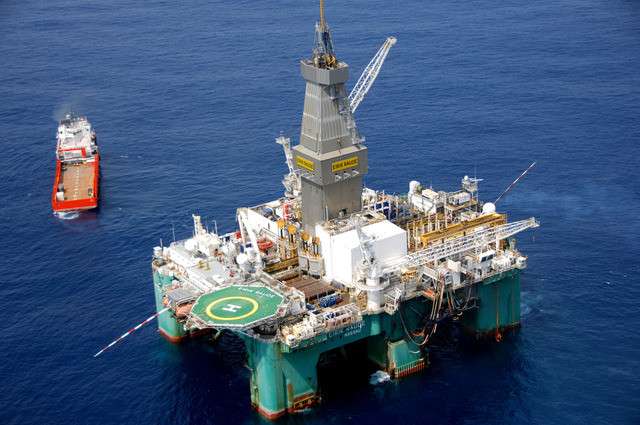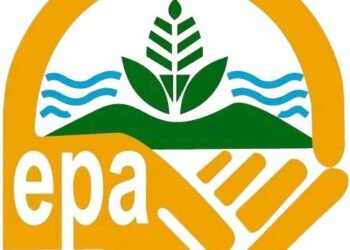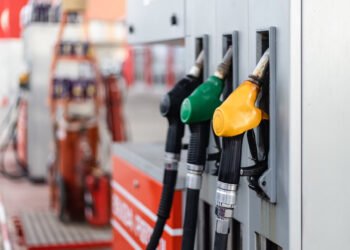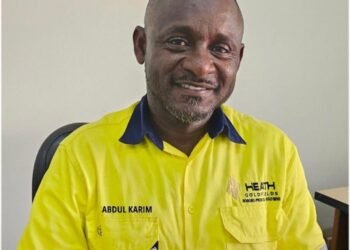Oil revenues in Ghana, have within a decade, accumulated US$6.55 billion— US$3.3 billion (2011-2015); US$3.25 billion (2016-2020) — albeit, this does not reflect a similar show of ecstasy that greeted Ghana’s first discovery of oil; the degree of economic development in the local communities within whose jurisdiction these resources are extracted are ‘only next to nothing’ compared a decade ago.
What happened to us as a country? asked Ms. Elizabeth Vaah, Risk Manager, TD Bank in Canada and Leader of Ghana Environmental Advocacy Group, in an interview with the Vaultz News.
Years ago, under the presidency of John Agyekum Kufuor, during which time oil was discovered offshore for the first time, the famous words of the then President resonated: Ghana will be an “African Tiger”, during an interview with the BBC Focus Africa. The former President is cited to have said that: “Even without oil, we are doing so well… With oil as a shot in the arm, we’re going to fly.”
According to the publication dated June 19, 2007, BBC Focus Africa’s correspondents amusedly said: “champagne bottles were popping at Osu Castle”, the seat of the then Ghana government, until the establishment of the Jubilee House, after the announcement of the oil discovery.
Even then, reactions were mixed, considering the fact that, Ghana’s neighbor, Nigeria had fallen into the quagmire of the ‘dreaded’ resource curse. And Niger Delta, which is one of the oil exploration and production hubs in Nigeria was among the poorest in the country. After all these years, can it be said that the ‘prophetic’ words uttered about Ghana becoming an ‘African tiger’ is being realized?

“…The three districts of the Nzema area: Jomoro, Ellembelle and Evalue-Jira… We have gold being taken from there, we have now oil. This region is covering about 80% of the oil… but even then, if you visit the area, and you look at some of the communities, you will be surprised if really, these are areas that are contributing so much money into the national cake.
“The poverty there is real, and it leaves you wondering, who really does these agreements/contracts/laws, that forget that, if you are taking something from a community and they don’t really see any change in their lives, [someday], no matter how docile they are, at a point, they will begin asking questions and that is what is starting to happen. It’s a lot of unfairness. It’s just irresponsible on the part of the State.”
Elizabeth Vaah
Indirectly, host communities are expected to benefit from these oil resources extracted, in the form of corporate social responsibility projects which unfortunately are often disconnected from local development priorities, studies have shown.
Disconnect Between Corporate Social Responsibility and Impact of Oil Extraction
Even so, Oil companies such as Tullow, Eni, etc. as well as the regulator and GNPC through its foundation have indicated championing these CSRs in these areas. However, there is still discontent among fisher folks in these communities who believe there is a disconnect and that these do not compensate for the extent of impact from the activities of oil companies.
“Corporate social responsibility (CSR), that says, well, take my resources, and when you feel like it, drop a few coins my way. That just doesn’t cut it, and on top of that, even these CSR thing, there is a lot of unnecessary politicking, there is a lot of unnecessary ‘bigmanship’, so that for your community to be to able benefit from any of these things you virtually have to kowtow to whoever is the one that has the money to dole out. That is not right!
“…Go to places like Norway, Canada…The very fact that the resources are in that community, there has to be something set aside for that community, so that whether they kowtow to the government of the day or not, that, they should get by virtue of having that resources in their communities.”
Elizabeth Vaah
Perhaps, this ‘injustice’ as Ms. Elizabeth Vaah puts it, may be sowing anger, betrayal and unrest among the people as their development lags, despite the existence of these vast resources in their territories and their hopes of a better life dashed on rocks.

Regards the PRMA (PRMA Act 815) Act, 2011, Section 24 (2), the law states that: “where Petroleum operations are carried out on-shore, appropriate royalties shall be paid in accordance with relevant laws.” Section 24 (3) also states that: “where petroleum operations adversely affect a community, appropriate compensation shall be paid for the benefit of the community in accordance with the relevant laws”.
While the country’s oil resources are predominantly offshore, the law suggests that, these communities are entitled to ‘virtually nothing’ from oil resources in their jurisdictions except an impact of oil activities is established. Even so, there is the exception of companies’ CSR activities which are found to be much less of an opportunity to develop these communities, studies have shown.
Develop Fund for Oil Revenues Dedicated to Local Communities
Comparably, communities on whose lands gold is extracted are entitled to royalties— mining companies pay up to 5% of their total revenues as royalties to the state, and of that, the government transfers 20% to the Minerals Development Fund. However, mining communities are still not getting their due, as royalties transferred into the MDF in 2020 was less 7% out of the 20% required to be transferred into the MDF. Indeed, there is something fundamentally wrong, she surmised.
Ms. Elizabeth Vaah opined that, with the country’s oil and gas resource, “the right thing to do, when you earmark these funds is to put it in an independently managed fund with knowledgeable people [managing it].
“People who can independently assess the needs of the communities based on input from the communities themselves and whatever prioritization is assigned to which thing. A more inclusive way of deciding what is most needed by the communities and how best to provide, away from the political trickery.
“Because, if you put these things in the hands of the politicians, then they decide what to do, when to do it and who to give it to, based on their own criteria and interests. So, at the end of the day, you will see things being done in places where it has little impact on the people”.
Elizabeth Vaah
Indeed, it is with no doubt that, the communities are being affected by the oil and gas extraction along the Western coast, she said. In 2021, fishing communities bemoaned the invasion of sargassum weeds along the Western Coast, which disrupted fishing activities and threatened the source of livelihoods of the fisher folks.

This is not the first time calls to this effect have been made. As far back as 2014, less than 5 years after Ghana began commercial production of oil, cases of sargassum weeds gathering along the shores of the Western Coast were reported to have disrupted fishing activities.
The 500-meter no-fishing zone around the Jubilee field, and other red zones created around offshore oil rigs have also had significant impact on fishing activities for years, and it appears concerns about small scale fishers finding their way around oil rigs for fishing activities is growing, considering recent mention of the issue in December 2021.
Citing an informant survey conducted, there was a gendered dimension to the impact of oil and gas operations along the Western coast— women were being impacted from oil and gas operations offshore. The study indicated that “half of the respondents perceive a decrease in fish catch, loss of jobs for husbands and reduction in income levels.”
Even so, other studies note that the cost of living within these areas are very high, despite the fact that, the standard of living of these fisher folks have not improved to a larger extent. Should the status quo be allowed to continue into perpetuity, this would not augur well for the progress of these communities.
Ms. Vaah’s belief is that, there is need for a revision of the existing laws governing the oil and gas sector as well as the benefits these communities are entitled to. For, there and then will the former President’s declaration of Ghana being an ‘African Tiger’ truly reflect in the lives of the local communities and the Ghanaian people as a whole.
READ ALSO: Ghana’s Cocoa Production Down By 54% In December 2021- ICCO























